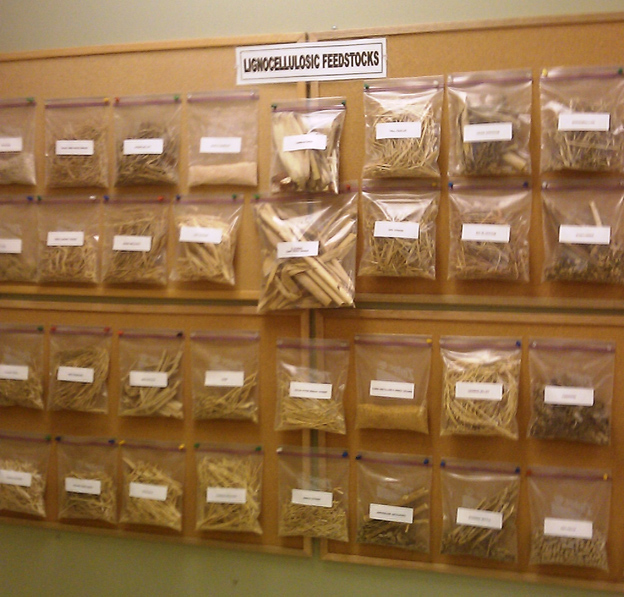| Cellulosic Ethanol |
Feedstock Expertise |
|
|
Iogen has extensive experience testing and processing a diverse range of feedstocks in its laboratory, pilot, and demonstration a plant facilities and at Raízen’s Costa Pinto facility, including crop residues, energy crops and woody materials. As each feedstock exhibits different characteristics, our team of experts can readily evaluate your feedstock and tune our process to optimize the economics for any given feedstock. .
Iogen has the capabilities and experience necessary to assist partners with the implementation of an optimized sustainable feedstock supply chain. In addition to the years of experience assembling feedstock supply chains for cellulosic ethanol projects around the world, our feedstock experts have implemented and operated feedstock supply chains in the straw board and biomass power industries. Through our many years of experience we have developed the capability to optimize the cost and risk associated with biomass supply. Our practices include:
- Development and implementation of commercial strategies to achieve the lowest cost from suppliers and other participants in the supply chain.
- Establishment of detailed feedstock supply cost models.
- Feedstock equipment selection including the assessment of field processing and densification equipment to minimize overall transport costs.
- The design and optimization of feedstock storage yards and infrastructure including the cost benefit analysis of distributed verses onsite feedstock storage.
- The management of risks associated with biomass supply.
In North America and Europe, Iogen has had a multi-year commitment to developing an effective strategy for acquiring secure, bankable long term commitments from farmers for crop residue supply. Our farm based agricultural reside approach involves marketing a customized, focus-group tested offering to farmers in a target locale. Our team has signed up more than 1900 farmers and contracted for the supply of over 2.8 million tons per year of crop residues around the world. We believe that, once established in a region, we can drive costs down further by methods including increasing market penetration, shortening trucking distances and, potentially introducing dedicated crops to farmers.  |


